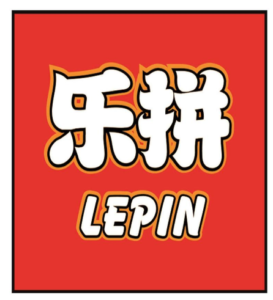An efficient, reliable and cost-effective route for protecting trademarks globally through the Madrid Agreement or the Madrid Protocol will be beneficial for IP-right holders.
For a period of five years from the date of the international registration, the protection resulting from the international registration remains dependent on the BASIC application or registration also known as the “home registration”. The protection resulting from the international registration may no longer be invoked if, or to the extent that, the basic registration, or the registration resulting from the basic application is cancelled, renounced, revoked, invalidated or has lapsed, or if the basic application is the subject of a final decision of rejection or is withdrawn, either within that five-year period or as a result of an action commenced within that period.
By many practitioners, the dependency on the basic application/registration is considered a high risk when using the Madrid Agreement or Madrid Protocol system to expand the scope of protection to other territories.
On the surface, the dependency on the basic application/registration seems to be a quick fix for holders of earlier rights since, according to WIPO’s Guide to the International Registration of Marks, Part B (the “WIPO Guide”), § 83.02, this dependency is absolute, and is effective regardless of the reasons why the basic application is rejected or is withdrawn or the basic registration ceases to enjoy, in whole or in part, legal protection.
For practitioners around the globe, this process, by which an international registration may be defeated for all countries designated in a single invalidation or revocation action against the basic application/registration, has become generally known by the term “central attack”.
According to WIPO Guide § 83.03 “… provided the decision in respect of the basic application is final (that is, no longer subject to review or appeal), the Office of origin is required to request the International Bureau to cancel the international registration, either totally or partially.” (Our emphasis in bold). Unfortunately, the WIPO Guide does not state anything on the appropriate deadline by which the Office of origin must report that the decision in respect of the basic application/registration is final. Neither does the WIPO Administrative Tool.
In our opinion, having no deadline makes the central attack procedure a delusion if the Office of origin does not report to the International Bureau that the decision in respect of the basic application/registration is final.
According to the WIPO Guide, the holder of the earlier right is entitled to inform the Office of origin that a decision in respect of the basic application/registration is final, if this is not done by, e.g., the court dealing with the matter. However, nowhere in the WIPO Guide is the holder of the earlier right entitled to inform the International Bureau of the final decision, which makes perfect sense especially taking into account the reliability of the Madrid Agreement and Madrid Protocol.
But what can a holder of an earlier right do if the Office of origin does not inform the International Bureau of the final decision in respect of the basic application/registration? We suggest that a deadline for the Office of origin to report that the decision in respect of the basic application/registration is final be added to the WIPO Guide. Additionally, it could be an idea to give the holder of an earlier right the right to inform the International Bureau of a final decision. Which should, of course, be confirmed by the Office of origin on the request of the International Bureau.
To give you a practical example, LEGO Juris A/S, the owner of the well-known LEGO trademark, filed an opposition against the 
(“LEPIN logo”) at the Chinese trademark office. The Chinese application for the LEPIN logo was used as a basis for designating 47 countries around the world. The opposition filed by LEGO Juris A/S was granted.
The owner of the LEPIN logo, Shantou Chenghai Longjun Toys Factory, requested a review. The review was dismissed on May 24, 2019 and the opposition upheld. The owner of the LEPIN logo did not appeal this decision, and the decision became final in June 2019. So far, this final decision has not been reported to the International Bureau. Consequently, LEGO Juris A/S must continue to challenge the 47 designations around the world, thereby spending time and costs on a conflict, which, due to a successful central attack, should have become superfluous months ago.
_____________________________
To make sure you do not miss out on regular updates from the Kluwer Trademark Blog, please subscribe here.


